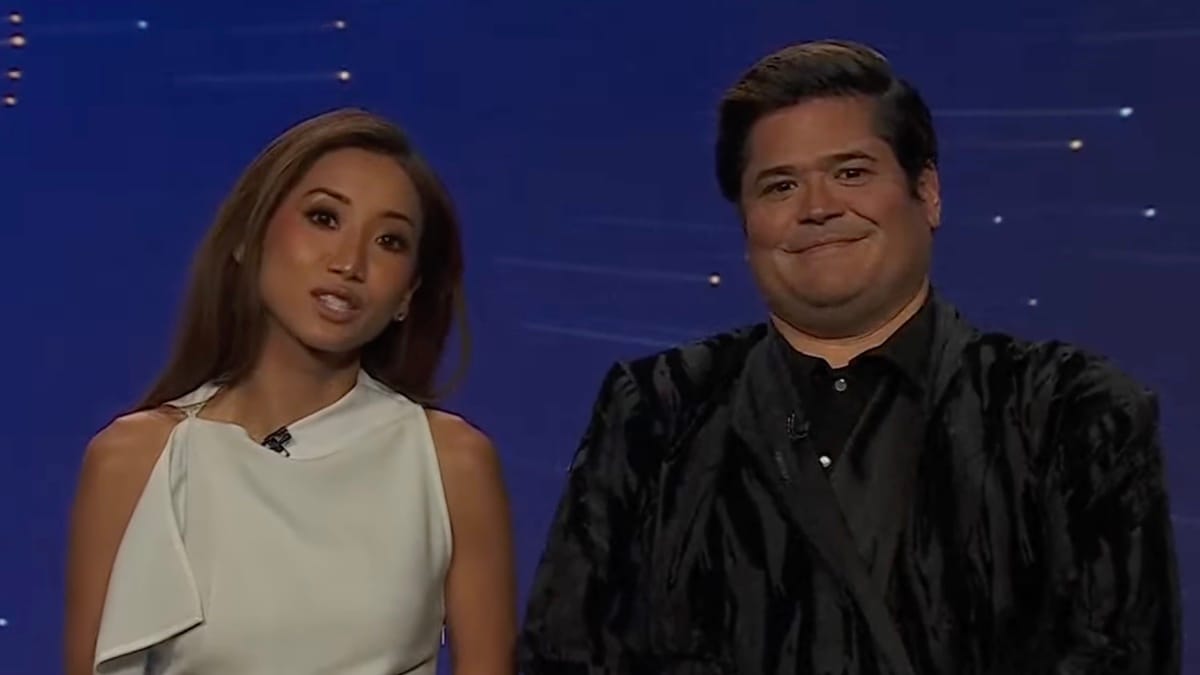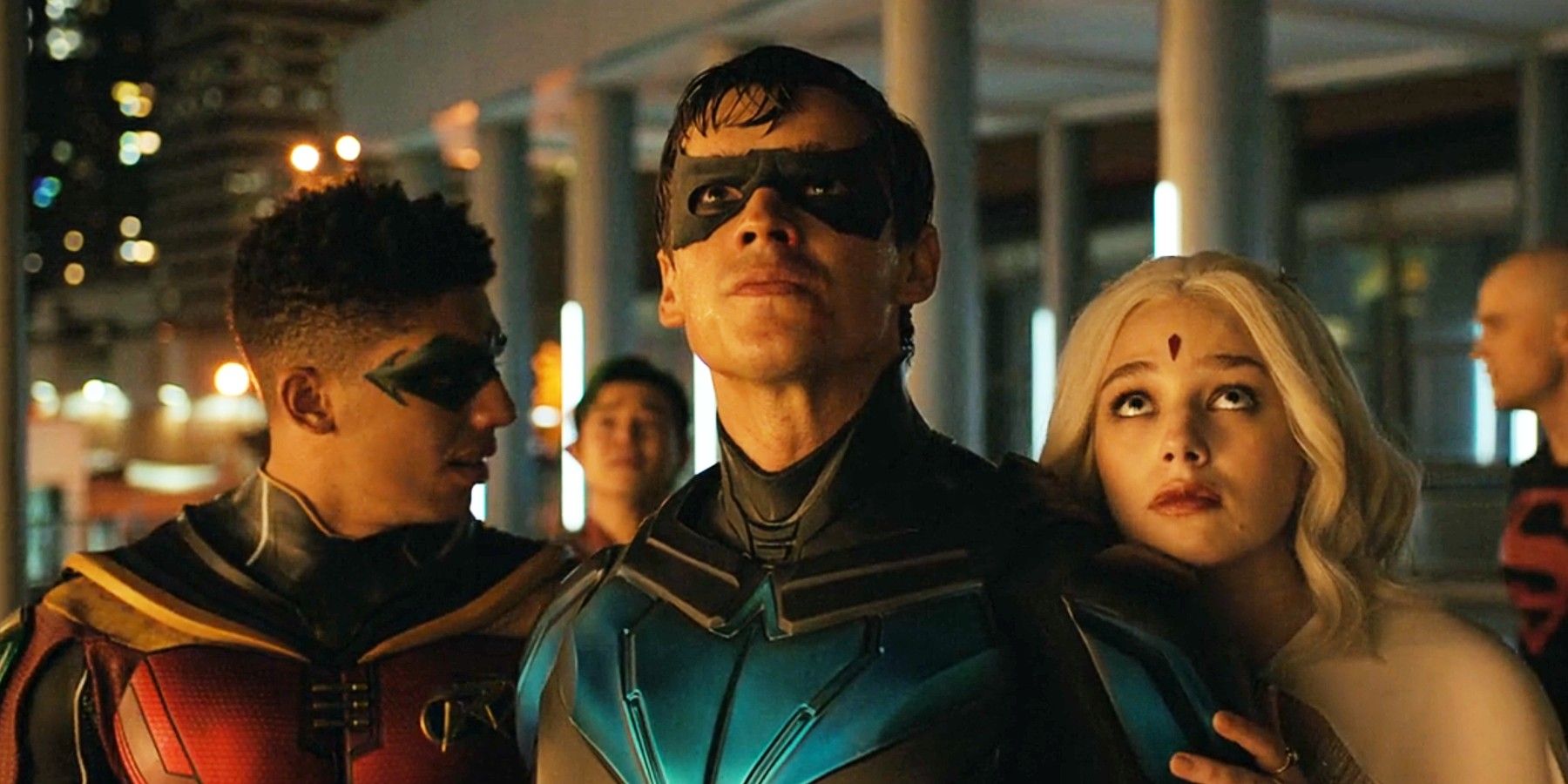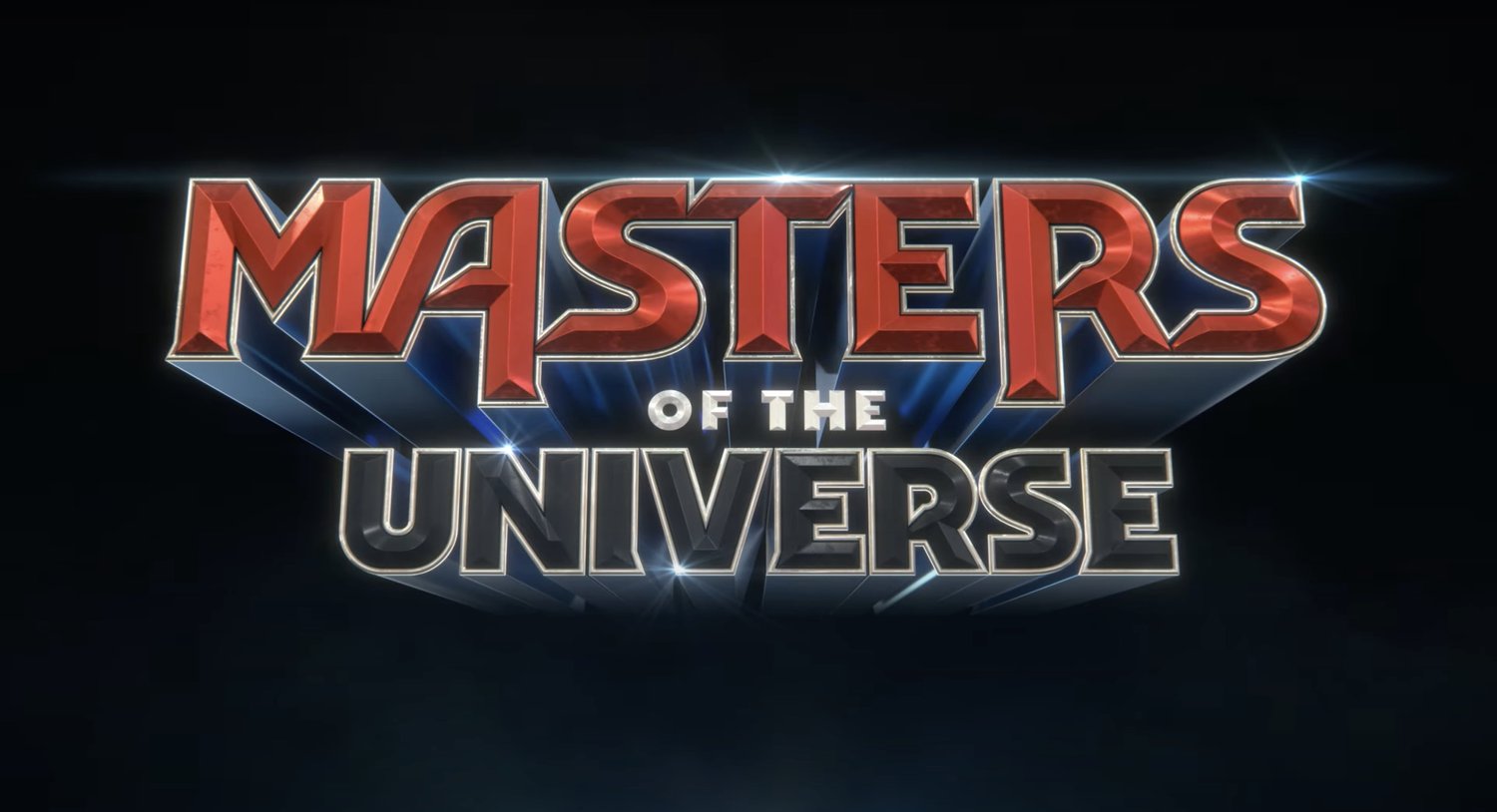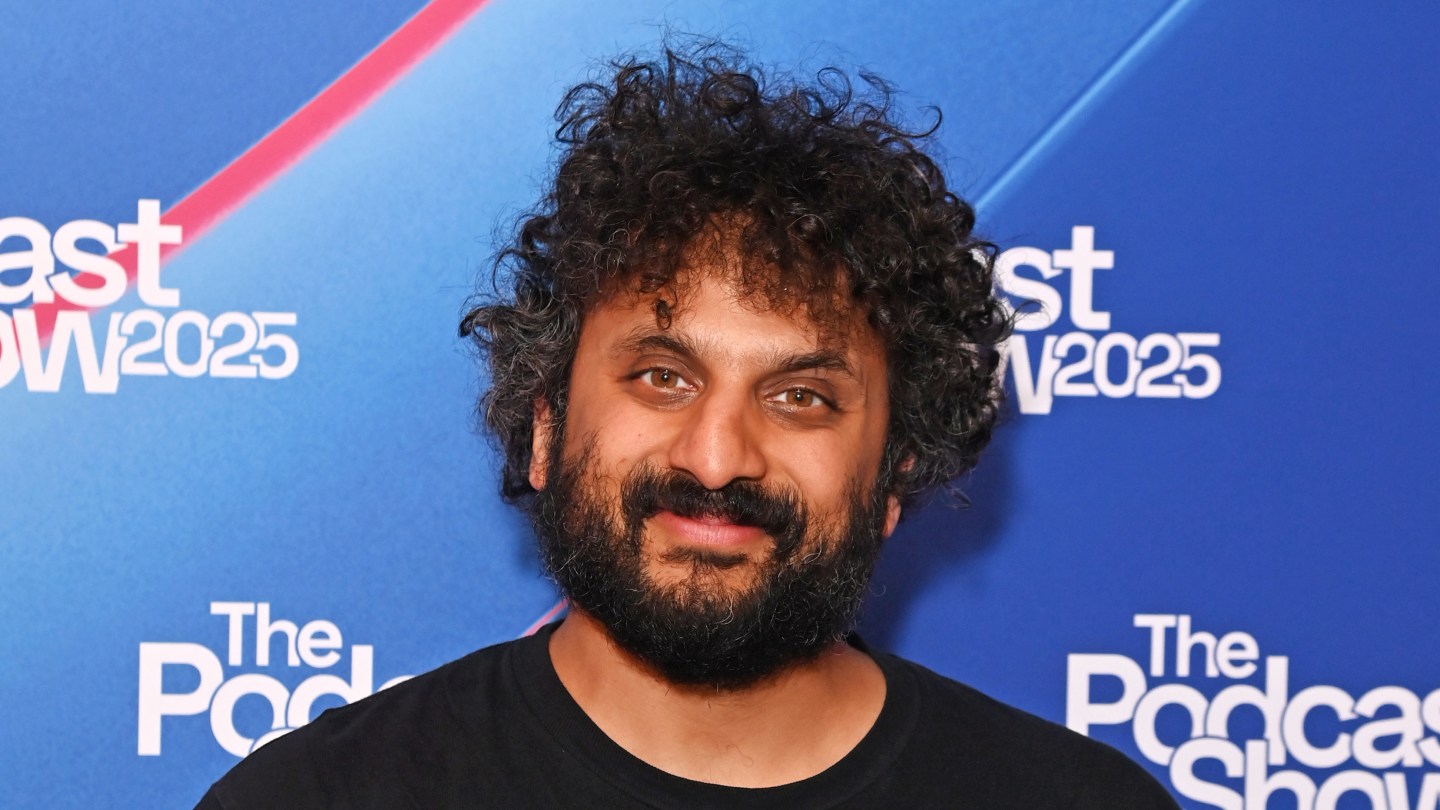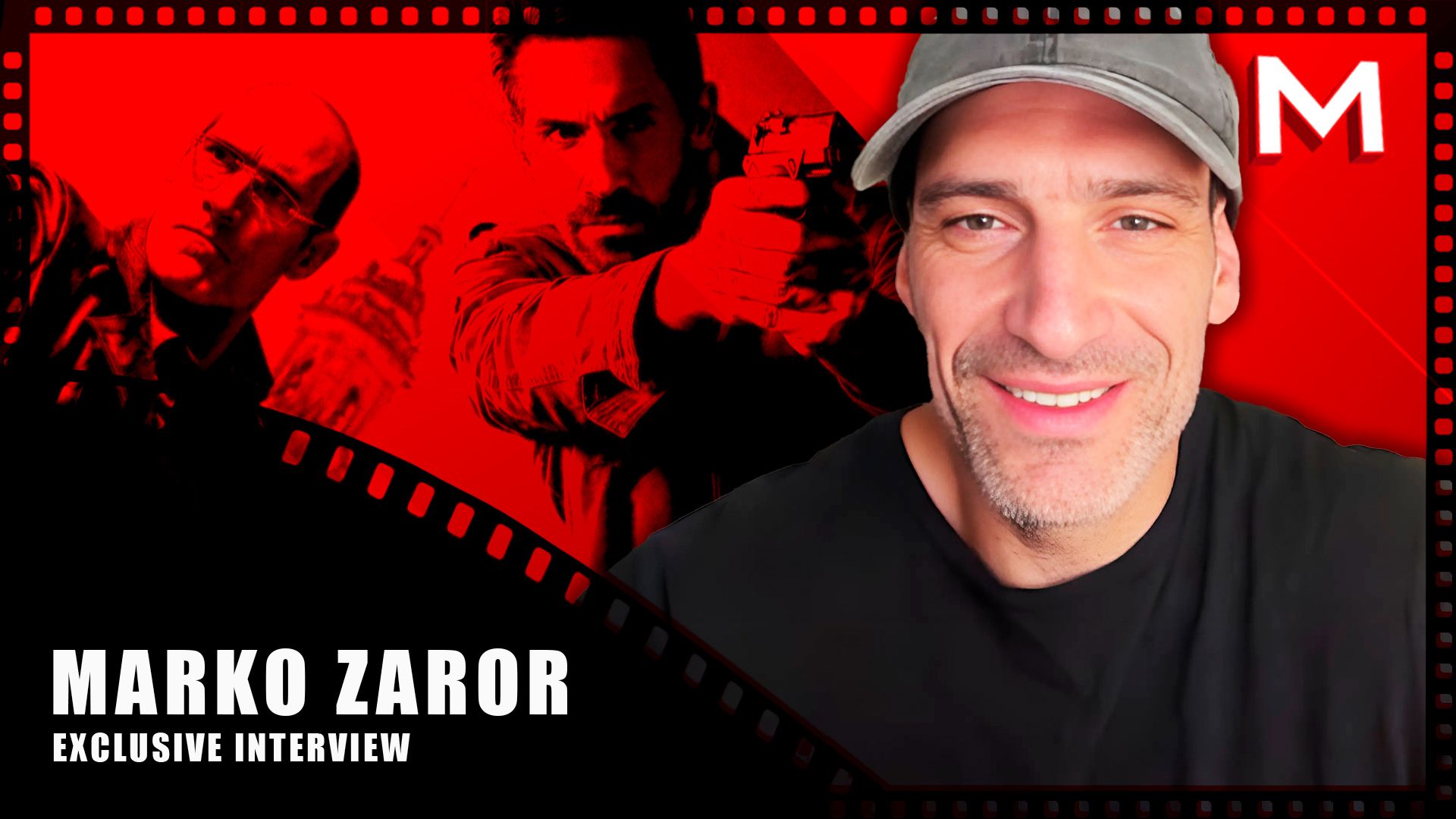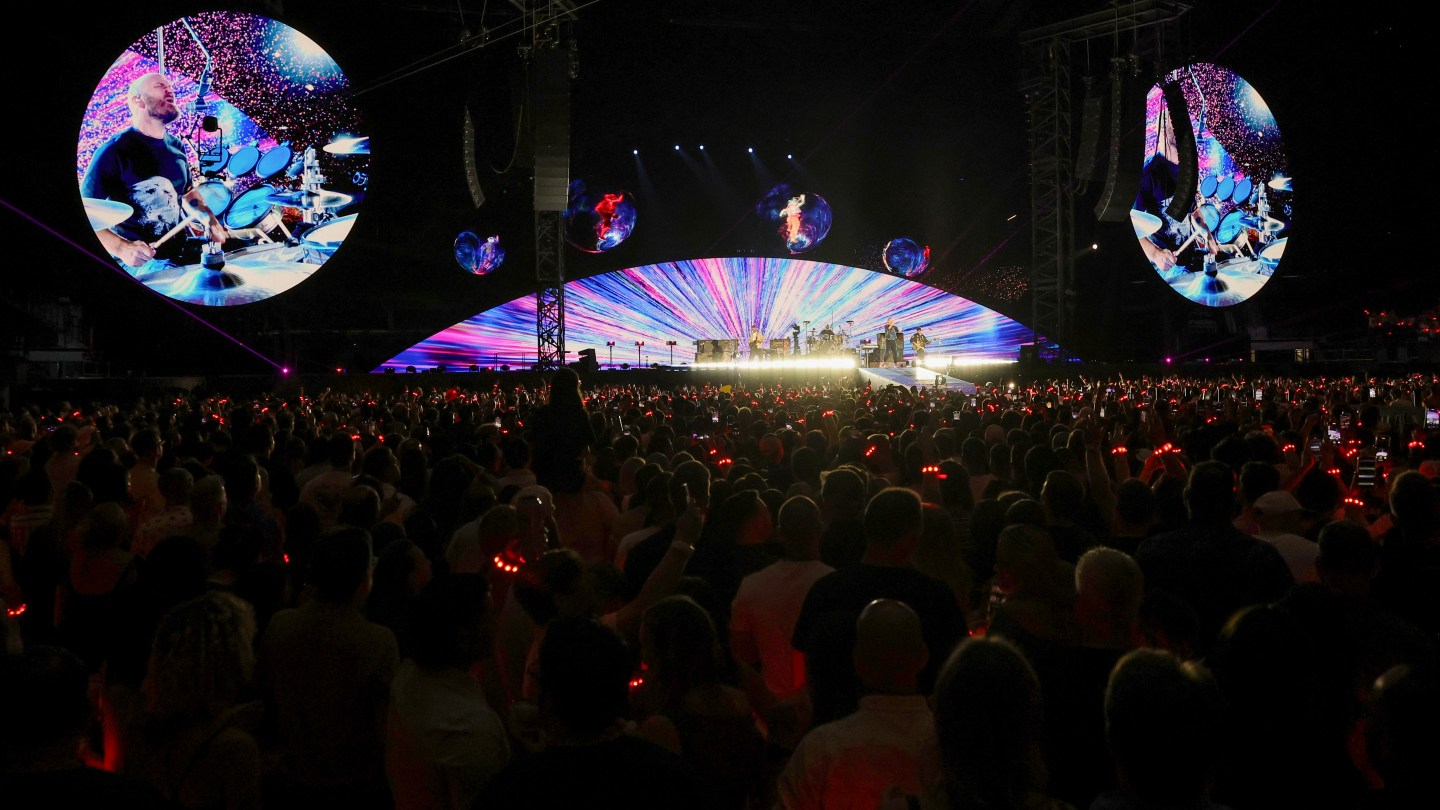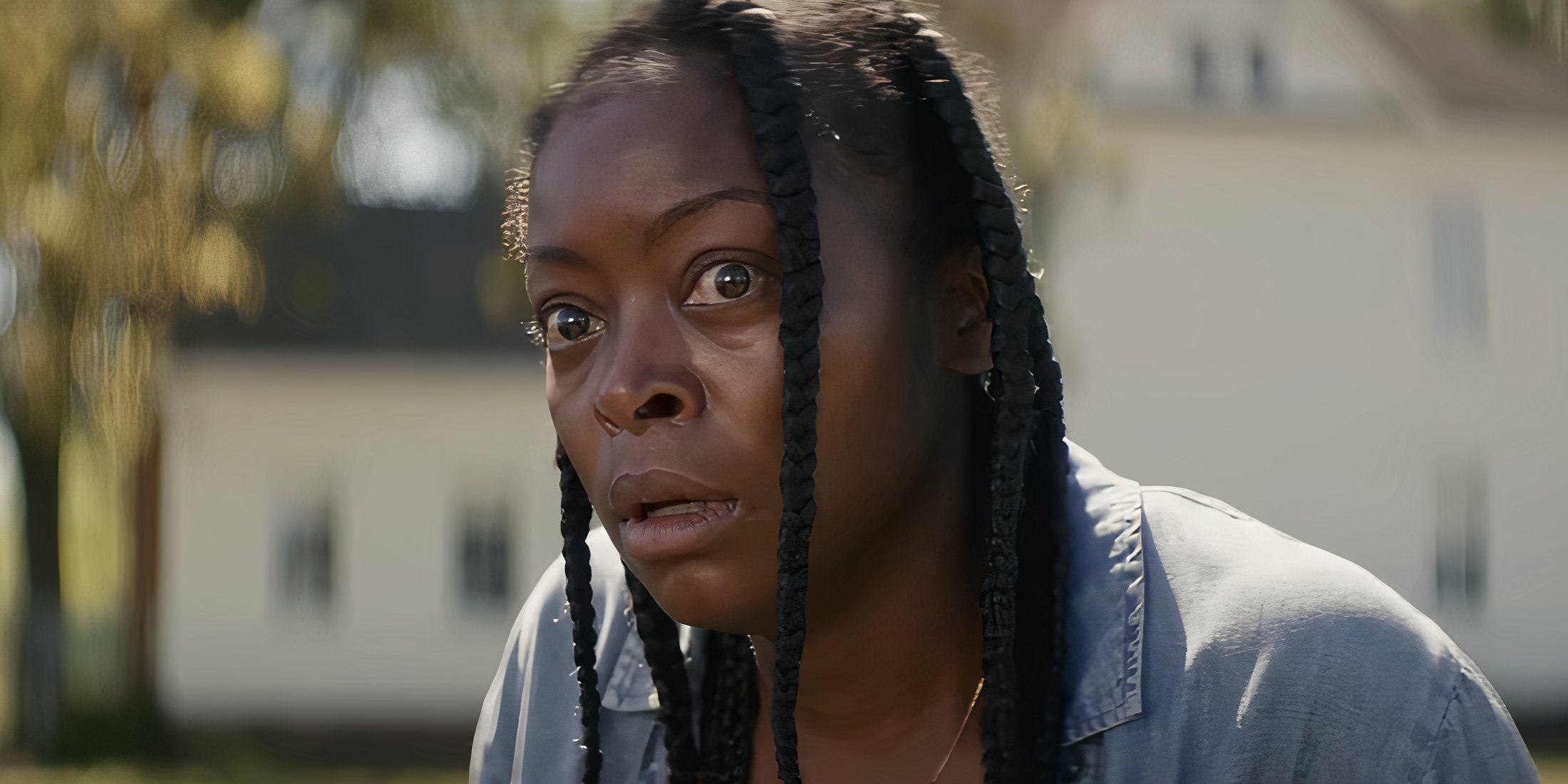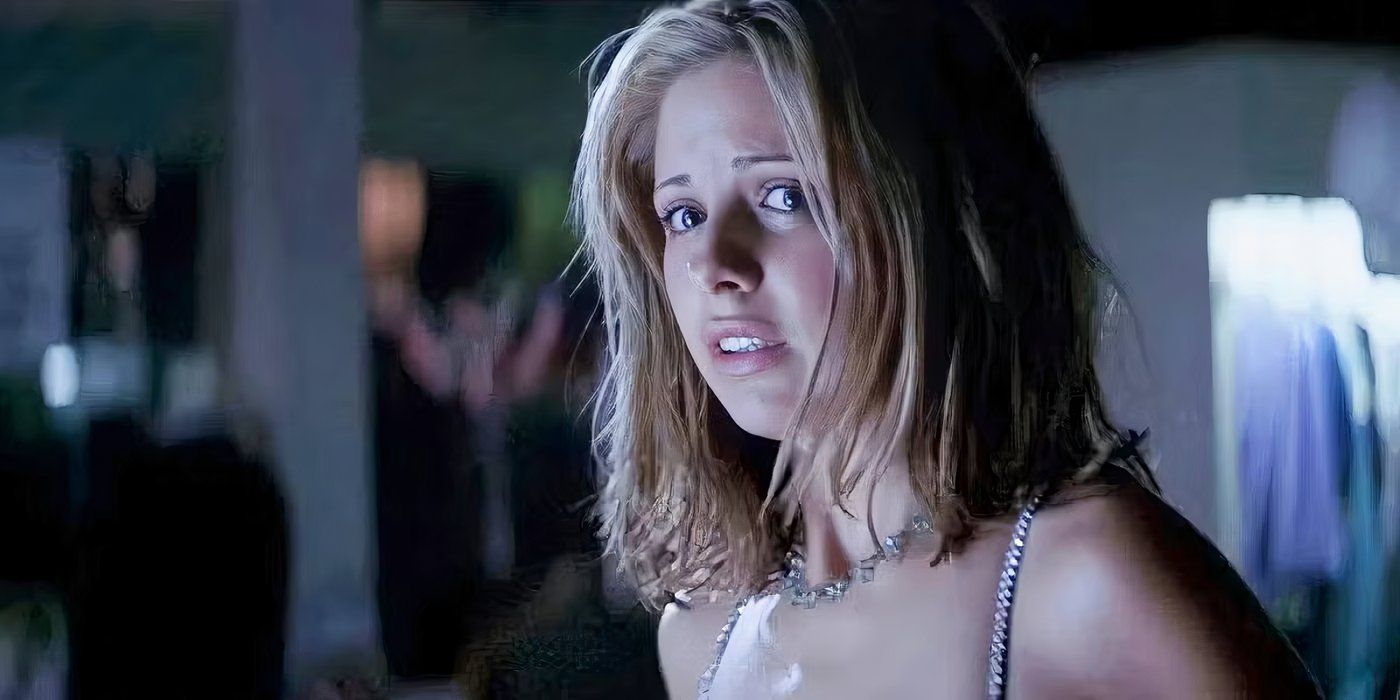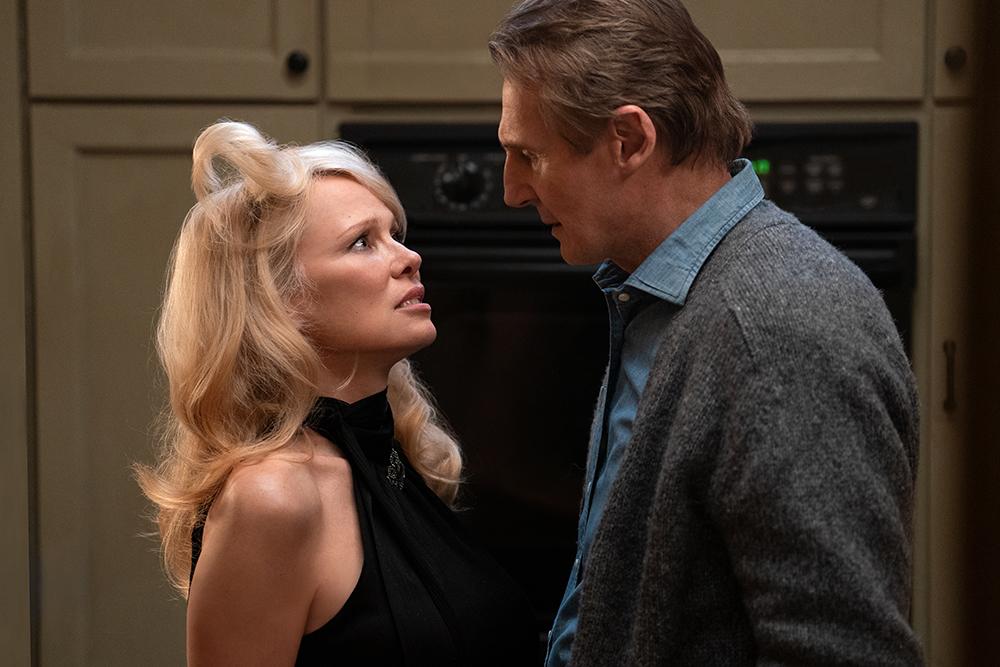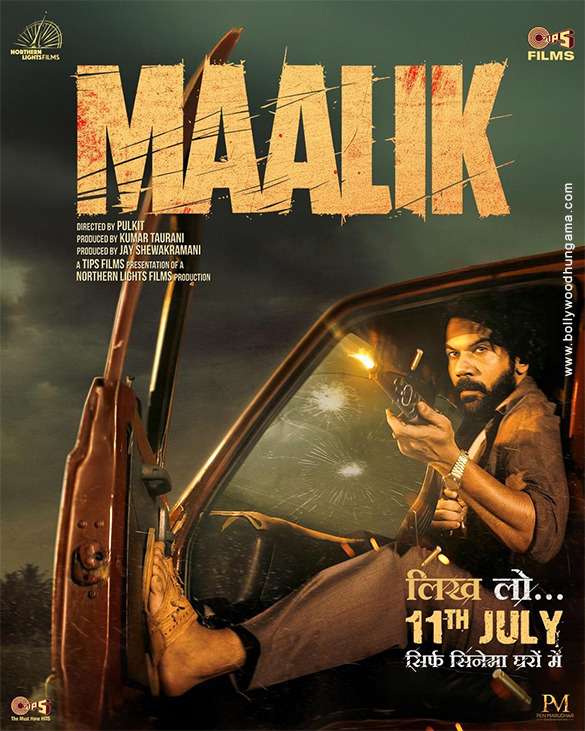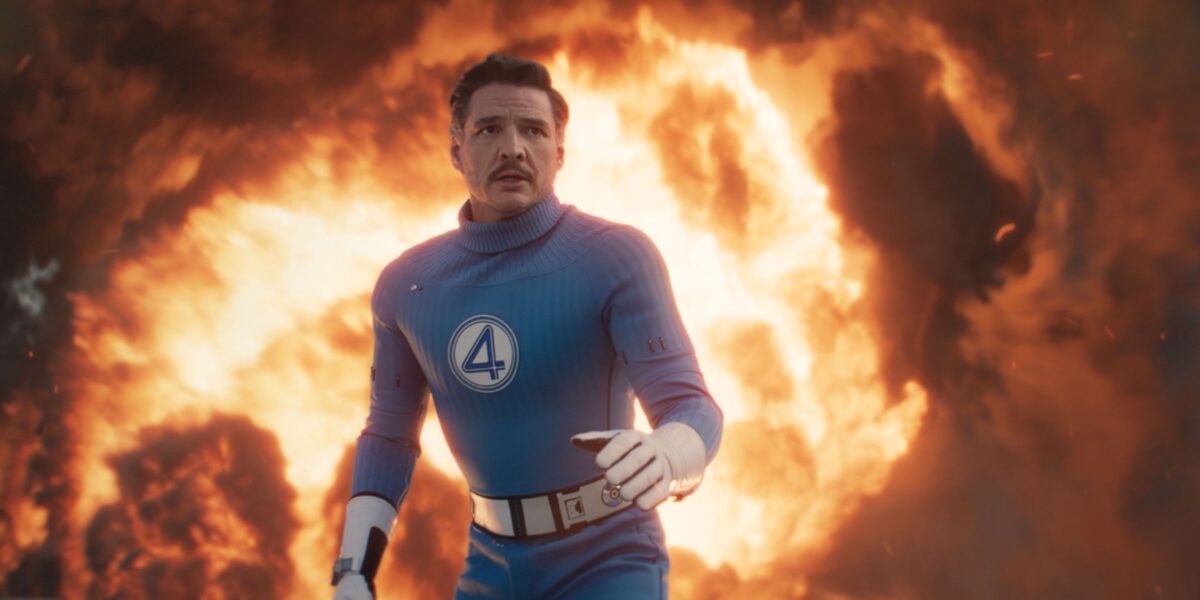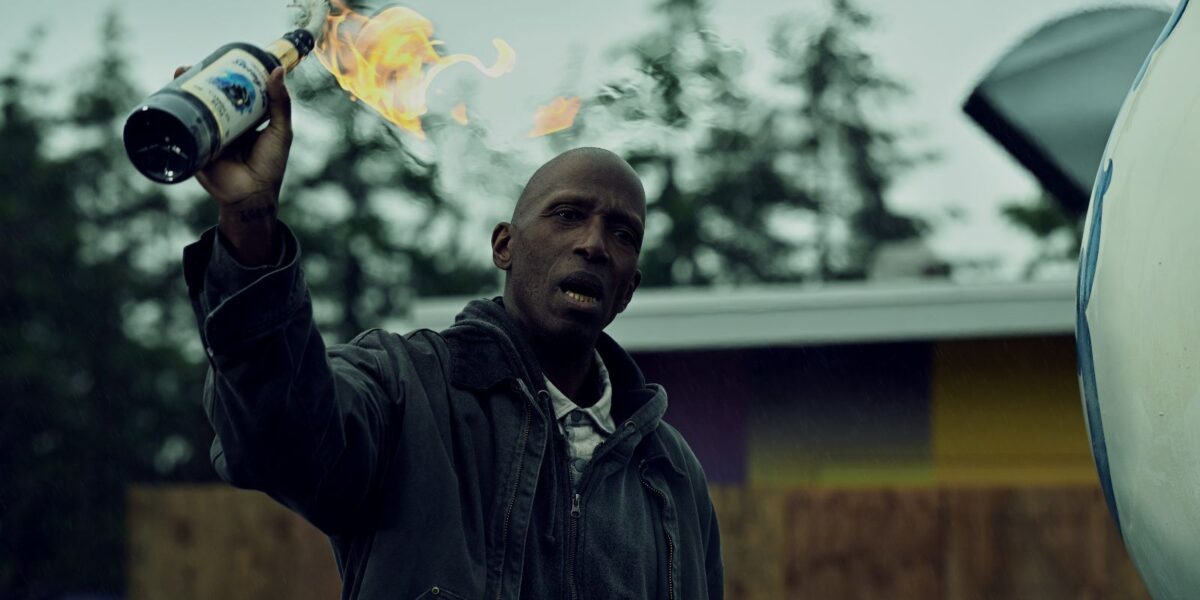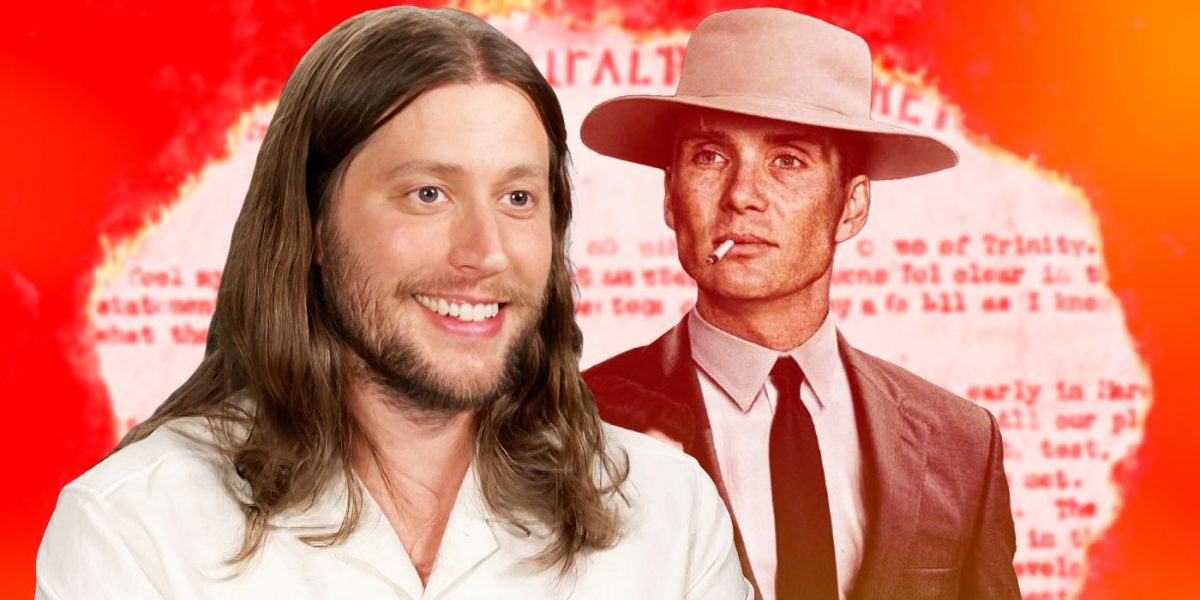
Ludwig Göransson’s First and Last Steps to Composing the ‘Oppenheimer’ Score
Nov 23, 2023
The Big Picture
Composer Ludwig Göransson created an unforgettable theme for Christopher Nolan’s Oppenheimer, using violins to capture the character’s complexity. Göransson worked closely with Nolan, starting his work early in the production process to build a “sound world” for the film. He drew inspiration from early visual effects screenings and his own emotional experiences to craft the score, aiming to make the audience feel and visualize Oppenheimer’s journey.
To capture the gravity of Oppenheimer, Christopher Nolan reunited with one of today’s top-notch composers, Ludwig Göransson. Not only was Göransson tasked with creating a theme for Cillian Murphy’s portrayal of physicist J. Robert Oppenheimer, but he’d need to translate quantum energy to music.
While speaking with Collider’s Perri Nemiroff for the movie’s home release on 4K and digital, Göransson demystifies some of his process when composing for a feature film. Having worked together previously on Tenet, he and Nolan set to work early on in the production, as soon as there was a script, to build a “sound world.” In this particular case, Göransson tells Perri he was inspired by early VFX work shared during an IMAX screening and Nolan’s interest in using violins for Oppenheimer’s theme.
Check out the interview in the video at the top of this article or in the transcript below to find out what the final puzzle piece of the score ended up being, how he partnered with editor Jennifer Lame to perfect “Can You Hear the Music,” how he channeled his own emotional experiences into the music, and tons more.
Oppenheimer The story of American scientist, J. Robert Oppenheimer, and his role in the development of the atomic bomb. Release Date July 21, 2023 Director Christopher Nolan Cast Cillian Murphy, Matt Damon, Robert Downey Jr. Rating R Runtime 181 Main Genre Biography Writers Kai Bird, Christopher Nolan, Martin J. Sherwin
PERRI NEMIROFF: Can you tell me one thing about your process that stays consistent from film to film, but then also something unique to Oppenheimer that you’ve never done before when composing a score?
LUDWIG GÖRANSSON: The way I’m keeping myself consistent to the way I work is I always try to make it feel like I’m doing something for the first time when I’m starting out. I always want to have a new way to find myself into the project and to get inspiration because you can’t just repeat your methods. And also, my background is in improvisation, so my toolbox is getting bigger. I think it’s just the challenge of how you can challenge yourself and create and be inspired in a way that is a different process. Fortunately, I’m lucky to do that because, on Oppenheimer, Chris gets me involved very early in the process, right after he writes the script, even two or three months before he starts shooting. That’s when we have time to do these experimentations and create music. He’s very part of the music-making process. We sit there every week for two or three months. I write about ten minutes every week, and we listen to it, and we analyze it. We take some details from the songs or some melodic theme ideas and we just start analyzing and talking about it. Then, we build our whole sound world before we start shooting.
Completing the ‘Oppenheimer’ Score
Image via Universal Pictures
I read somewhere that he gives you the script and then you start putting the pieces together. Do you remember the first piece you put on the board, the thing that got you going, and then also the last piece that fell into place and made you feel like you had a complete score?
GÖRANSSON: The first piece that I started working on was after I read the script and I had a conversation with Chris, and him telling me that he was interested in experimenting with the violin and having the violin portray Oppenheimer. He was interested because when you have that instrument, you can go from the most fragile, intimate, beautiful, romantic tone to something neurotic and horrific within a split second. My wife, Serena [McKinney], is an incredible, accomplished violinist, so the first piece that I did for Oppenheimer was us sitting down together in my studio. She was playing these microtonal glissandos up and down, and then I layered them on top of each other, trying to create something that almost feels like a siren or something.
And the last piece that came together on the whole score was the scene after the Trinity test when Oppenheimer’s having his speech in front of his team. That’s one of my favorite parts of the movie. The feelings that evokes in you, in me, were really difficult. And I felt that feeling even after I read the script. I could never imagine someone feeling like that or going through that, and it was so bizarre. I think that’s why it was the last piece of the music, the last piece of the puzzle, because it took a long time for me to be able to go there myself and to be able to understand that feeling that he was going through.
Image via Universal Studios
You’re also quite successful at making people feel and even visualize things that perhaps we shouldn’t be able to. From the composer’s perspective, what was it like ensuring the audience could see and feel what it’s like for a physicist to consider quantum energy? It feels like an impossible question to answer, but you’ve done it!
GÖRANSSON: [Laughs] Some things were easier and some things were extremely difficult. The easier parts were the things I could identify with, like in the beginning you see him in his bed feeling lonely and feeling misunderstood. For me, the loneliness was something I could very much relate to, so that’s kind of where his theme got started, the Oppenheimer theme. Then you see his visions when he’s dreaming, those molecules going faster and faster and faster. That was actually Chris inviting me to one of the early visual effects screenings that he had. He worked with Andrew Jackson; they were presenting some stuff for him, and we saw it in an IMAX theater at Universal a couple of months before he was shooting the film. That image and visual had such a big impact on me, seeing those molecules going faster and the fire, and how that felt sitting in a theater seat. There was no sound. Nothing. It was these beautiful images. That inspired me to write the more mathematical music that goes faster and faster and faster. And then there are the more difficult moments, like the one I talked about when he’s having a panic attack. That was a little bit more difficult getting to those emotions and also a little uneasy at times, I would say.
Crafting “Can You Hear the Music”
Are those visual effects tests and the script enough to compose something like “Can You Hear the Music,” or do you also need to see the incredible montage that [editor] Jennifer [Lame] cuts?
GÖRANSSON: The visual effects had a big impact in the beginning, like I said. It was impossible to really know what I was seeing because it’s not CGI, and they’re using I think technology from maybe the ‘70s or ‘80s. I think they shot it in some aquarium, and Hoyte [Van Hoytema] built a lens for it. So they did it in a way they couldn’t have done at that time, and I think that’s also how I wanted the music to be like. We’re using instruments from the time, like the string orchestra or the orchestra, but we’re doing it and recording it and we’re manipulating it in a way you couldn’t have done it back then, and we’re also using modern sounds to manipulate.
I had the basic idea of “Can You Hear the Music,” but how important it was to work together with Jennifer Lame on all this stuff, and seeing her and Chris, how they’re cutting it shorter and cutting it together, and those intercuts between the molecules swirling around and him laying in bed, and then also the Picasso painting, and how it just came together. It’s almost like magic, I would say.
Finding the Emotional Core of ‘Oppenheimer’
I’ll end with a question about crafting a theme. I know every single film is different, but are there any particular parameters you like to abide by when figuring out what a theme for a movie should be so that it’s memorable, but also feels movie-appropriate and not just like a device?
GÖRANSSON: For Oppenheimer, specifically, I knew, really after I read the script, that my approach to this was I wanted to find the emotional core first and not use any sounds or manipulations or productions to try to hide behind. I wanted to do it with just the violin and the piano, because I knew if we found that theme, if we found that melody, if we got that right, everything else would come to fruition.
Oppenheimer will be released on 4K UHD, Blu-ray, DVD and digital on November 21.
Looking for more Oppenheimer talk? Check out Perri’s interview with Christopher Nolan below:
Publisher: Source link
The Naked Gun Review | Flickreel
Leslie Nielsen underwent an interesting onscreen evolution. Coming from a dramatic background, he became synonymous with the spoof genre after Airplane! and The Naked Gun. Liam Neeson is perhaps the only living actor who could follow in his footsteps. Like…
Jul 30, 2025
Violence Reloaded In The Dark Tale Of A Crime Lord, “MAALIK”!
The Legacy of a Don: Starring Rajkummar Rao (Left) as Deepak a.k.a “Maalik” and Prosenjit Chatterjee (Right) as Superintendent of Police (SP) Prabhu Das “Maalik Paida Nahi Huye To Kya, Ban To Sakte Hain”, meaning “So what if I am…
Jul 30, 2025
The Fantastic Four: First Steps Review
The Fantastic Four: First Steps is the 37th theatrical release in Marvel Studios' billion-dollar franchise, the Marvel Cinematic Universe, and it's coming at a bit of a low point. Marvel has struggled in recent years to reach the heights of…
Jul 30, 2025
As Dave’s Dark Secrets Unravel, One Shocking Confrontation Will Have You on the Edge of Your Seat
Editor's note: The below recap contains spoilers for Smoke Episode 6. After two weeks of intense character work, Apple TV+'s crime drama Smoke has returned to the main investigation through arguably the most important episode thus far. "Manhood" sees Taron…
Jul 29, 2025
